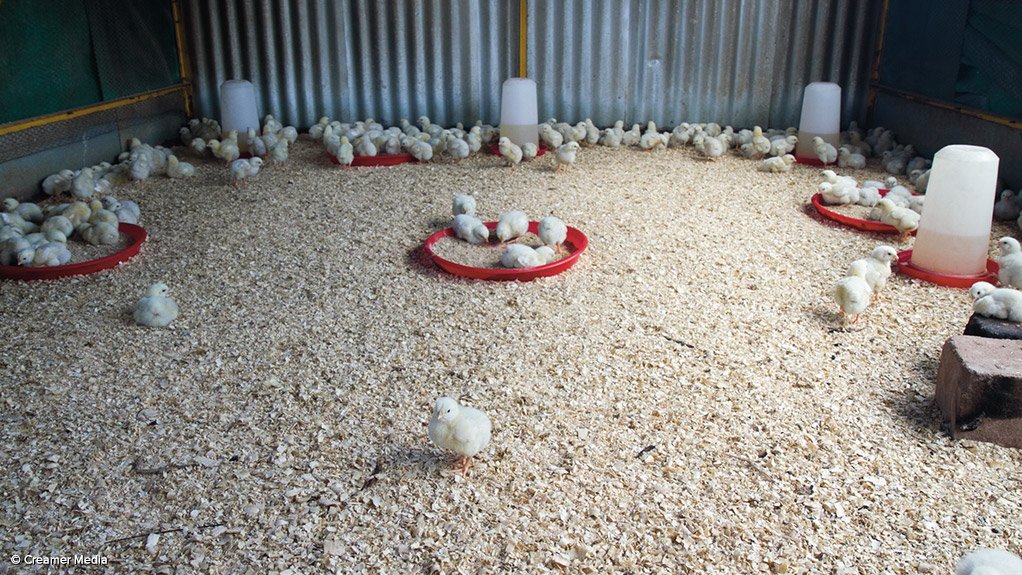The government is considering a temporary rebate on poultry meat import duties to mitigate South Africa's worst-ever bird flu outbreak, but this has elicited a warning from the South African Poultry Association (Sapa) that it could be the "final straw" for a local industry also battered by load shedding.
The International Trade Administration Commission (ITAC) said on Wednesday that Trade, Industry and Competition Minister Ebrahim Patel has directed it to consider "the creation of a temporary rebate provision on meat and edible offal, fresh, chilled or frozen fowls".
This followed an engagement between Patel and Agriculture, Land Reform and Rural Development Minister Thoko Didiza. The outbreak has led to the culling of about 2.68-million chickens as of 21 September, and producers have culled about 30% of their flock in the past two months.
"The impact of the depletion of locally available poultry will have severe food security implications on the availability and prices of poultry, which is a basic, staple protein in South Africa," ITAC said.
ITAC said consideration would be given to whether the "temporary rebate" would only be applicable to ordinary customs duties or whether "rebating anti-dumping duties should also be included".
The directive has also been gazetted by the Department of Trade, Industry and Competition (DTIC).
Poultry industry pressure
But Izaak Breitenbach, general manager of SAPA's broiler division, said the country's poultry producers already had their backs to the wall, reporting losses even before the bird flu outbreak as they wrestled with soaring costs associated with loadshedding.
If any temporary rebate was imposed, it could send many over the precipice. He said:
"Rainbow (Chicken), Quantum and Astral have already published and said that combined, the total loss due to avian influenza to date - and it hasn't stopped – is half a billion rand. And that is for only three companies, so one can just imagine what it is for the total industry."
"We will see job losses, and we will see economic decline in this industry."
The DTIC should not be "doing anything at this point in time" in terms of rebates on tariffs, adding that the industry already had five countries open for imports.
In addition, included in this were Spain and Ireland, which were not affected by import duty tariffs. Other markets that would fill the gap included, among others, the US and Brazil.
"We have enough countries to supply the imports that are needed. And we believe, without the rebate, we will see a significant increase in the amount of imports to address the potential shortage in chicken we will find in about eight weeks time."
He said the pathogenic avian influenza that has been wreaking havoc in the poultry sector over the past two months had resulted in 30% of the industry's flocks being culled.
Breitenbach added on Wednesday the industry has culled "in excess of five-million commercial layer birds and 2.5-million broiler breeder birds".
Sapa was meeting with DLARRD to "harmonise" the total figures being reported, adding that difference could be linked with timing.
Last week, Breitenbach also told News24 there was no need for SA to drop the import duties it had slapped on countries such as Brazil recently to protect the local market.
Breitenbach said these duties, which ranged from 2% to 265%, did not halt imports. Rather, the effect was rather felt in prices.
"Imports were taking place at ridiculous prices, and now imports take place at normal prices … the duty does not stop imports, it merely alters the import price," he said at the time.
Tough conditions
Small Talk Daily analyst Anthony Clark told News24 he could understand why Patel was considering this step, given that SA was "in an election cycle," with the festive period ahead along with an expected "tightness of domestic supply in poultry" to look forward to
But while the importation of chicken would "clearly fill a gap for the hard-pressed poor", it could have serious ramifications for the poultry sector, which was struggling thanks to state failures in providing water and energy.
"The Poultry Master Plan (to protect the local poultry industry) that the minister (Patel) signed off on a few years ago was already burnt to cinders a year ago when he relaxed tariffs for 12 months, then he reimposed them in August, and he now wants another curtailment to ease these duties.
"It makes me wonder what the government is actually doing. They encourage the poultry sector to invest heavily in a Poultry Master Plan, which they burnt last year – they're now burning it again. And the poultry sector in the last 12 months has made no money purely because of avian influenza and due to the inability of the state to provide basic services such as water and electricity, which has cost the poultry sector billions," he said.
Clark said what Patel should be doing instead is reducing imports and supporting the local poultry sector with a compensation fund to help mitigate the losses they have suffered due to avian influenza, adding that this is what happened in every other government across the world "apart from SA".
EMAIL THIS ARTICLE SAVE THIS ARTICLE
To subscribe email subscriptions@creamermedia.co.za or click here
To advertise email advertising@creamermedia.co.za or click here











